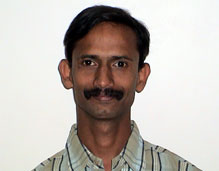In a significant development Abhay, in a statement issued on April 2, 2025, spokesperson of the Central Committee of the Communist Part of India (Maoist) said they were ready to sit at the negotiating table with the elected government. Ahaby said they Maoists welcomed a round table meeting held in Hyderabad on March 24 on the topic of ‘Stopping of war in central India-announcement of ceasefire by the Indian government’. He, however, called for a cease fire and halting the ongoing ‘Operation Kagar’ in Central India – Chhattisgarh and Odisha. Chhattisgarh Chief Minister Vishnu Sai immediately responded positively to the offer.
Earlier, there have been two attempts to hold talks with the Maoists, both in the then undivided Andhra Pradesh.[1] The first was in 2002. They were termed as ‘talks about talks. In other words, they were held to decide the agenda for future negotiations. They fell flat as there was no agreement on the agenda. A third attempt was made later in 2010. But it was a non-starter.
The second attempt was made in 2004. The Committee of Concerned Citizens (CCC), as well as political parties, suggested to the government to hold talks with the rebels. Importantly, all political parties in the state — Congress-I, BJP, CPI and CPI (M) –– favoured the creation of a congenial atmosphere to hold negotiations.
The objective of all these actors was to have respite from the ceaseless violence that plagued the state.
The idea itself was ill-conceived. In the last minute, the government hurriedly invited the Communist Party of India – (Janashakthi), too, for the talks. A day ahead of the scheduled commencement of the talks, the then Andhra Pradesh State Committee Secretary Akkiraju Haragopal alias Saket alias Pantulu’ (since deceased due to chronic illness) famously said on October 14, 2004, that talks were ‘war by other means’. He meant to say that they would compel the government to accede to their demands. For the Maoists it was a win-win-situation as well as loss of face. Win-win because the government later distributed several thousands of acres[2] and a loss of face as they could not fully realise their demands. Thus, the futility their revolutionary agenda was laid bare.
He received eight hundred and twenty-six pleas from the general public.
A few days ahead of the talks, Polit Bureau Member Cherukuri Rajkumar[3] alias Uday (since deceased) issued a charter of demands. The talks were held on three demands: land to the tiller, democracy[4] and self-reliance.[5] The government made it clear they would not be allowed to come over-ground.
Just ahead of the talks, on October 14, 2004, Saket announced the merger of the Communist Part of India [Marxist-Leninist] Peoples War, PW in short, and Maoist Communist Party of India, MCC in short. The merger had taken place on September 21, 2004, after prolonged rounds of discussion. Pushpa Kamal Dahal ‘Prachanda[6]’ convinced the two wage a joint war. The two sides saw merit in his suggestion – strength lies in unity.
The merger announcement came as a rude shock. What was until then two separate entities ¬– one operating in Southern India and another in Northern India – now became an all-India organisation. It now stretched from the borders of Nepal in Uttar Pradesh and Bihar down until Western India until Karnataka spanning across 11 States.
The entire country waited eagerly for the outcome of the talks as they would have far-reaching implications. Here was an elected government that was holding talks for the first time with a proscribed group.
The talks were led by the then State Home Minister Jana Reddy accompanied by Mr K Vijaya Rama Rao[7] and Mr Tammineni Sitaram. The government made it clear they would not be allowed to come over-ground with weapons. They duly deposited the weapons in a safe place. The government accorded them ‘state guest’ status. A cease-fire monitoring group comprising well-meaning individuals was also formed.
The talks were extended by a day and were held between October 15 and October 17, 2025. On October 16, an armed squad shot down Mr Adikesavula Naidu, Legislative Assembly Member. The following day the Maoists trashed the peace process and returned to the forests.
This time round the government needs to move cautiously keeping in mind past experiences. The government could hold negotiations, allow then to join the mainstream and seek public mandate.
Endnotes
[1] Andhra Pradesh was bifurcated on June 2, 2014 into Andhra Pradesh and Telangana by an Act of Parliament.
[2] It also in initiated formed Remote and Interior Areas Development Programme headed by a Cabinet Minister rank public representative.
[3] He was an M Tech in Chemical Engineering and owned 60 acres of fertile land. He rose through the ranks from being Secretary of Radical Students Union. He had extraordinary theoretical clarity.
[4] Right to propagate Maoist ideology.
[5] Opposing LPG -- liberalization, privatization and globalization.
[6] Meaning the fierce one.
[7] He superannuated as Director of Central Bureau of Investigation, premier anti-corruption watch dog.
(The paper is the author’s individual scholastic articulation. The author certifies that the article/paper is original in content, unpublished and it has not been submitted for publication/web upload elsewhere, and that the facts and figures quoted are duly referenced, as needed, and are believed to be correct). (The paper does not necessarily represent the organisational stance... More >>
Image Source: https://th-i.thgim.com/public/incoming/bcepih/article69405101.ece/alternates/LANDSCAPE_1200/20250320201L.jpg











Post new comment